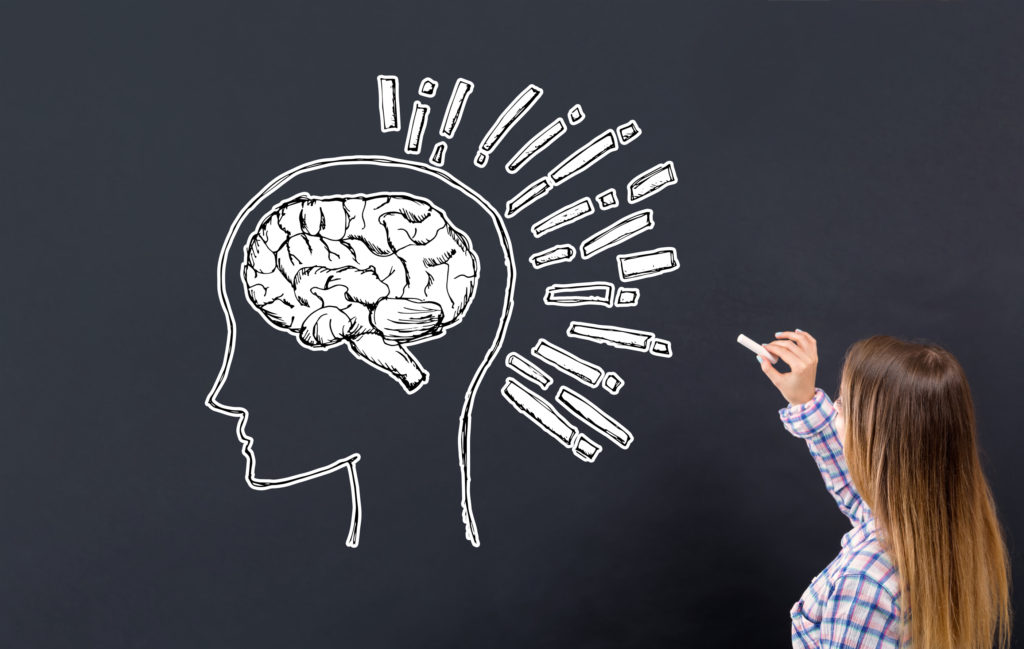Quick Hits
Daily brief research updates from the cognitive sciences

Learning and memory are key functions of the brain and ones that attract a lot of attention and research – and interest from normal folk like us. After all who wouldn’t like to know how to use one’s brain to learn and remember things better.
These two functions are, however, closely related. Memorising things is a part of learning – so are they part of the same process or part of separate processes in the brain? And does this happen in parallel or sequentially?
Most of us would probably assume that they happen in parallel – lots does in the brain – it is pretty complex. Similarly disentangling these processes is difficult – when we go about things in daily life we are drawing on our memories as we encounter familiar things and do familiar processes but when we encounter novel things we then need to learn and this seems to happen seamlessly
Researchers around Ruy Gómez-Ocádiz of the Insitut Pasteur in France have now given insight into this with some pretty innovative research.
For this they transported mice to a virtual world – yup, you read that correctly – researchers are now using virtual reality with mice! I will let you imagination run with that thought. This allows researchers to guide what the mice see and experience with more accuracy and therefore draw firmer conclusions. In this research it allows them to manipulate and distinguish between learning and remembering by transporting them to a whole new world so they can see learning in action.
What did they find?
Yes, they found that there is separate circuit in the brain’s hippocampus that switches between learning or remembering – the hippocampus is a well-researched area deep in the brain that is critical for memory formation but also memory recall and for navigation.
This shows that your brain therefore switches, sometimes rapidly between modes. When you encounter novelty it switches to learning mode and when in familiar territory you are in remembering mode.
And going through this article it probably switched a few times – but hopefully the learning mode also so that you remember this for later!

Andy Habermacher
Andy is author of leading brains Review, Neuroleadership, and multiple other books. He has been intensively involved in writing and research into neuroleadership and is considered one of Europe’s leading experts. He is also a well-known public speaker, speaking on the brain and human behaviour.
Andy is also a masters athlete (middle distance running) and competes regularly at international competitions (and holds a few national records in his age category).
References
Ruy Gómez-Ocádiz, Massimiliano Trippa, Chun-Lei Zhang, Lorenzo Posani, Simona Cocco, Rémi Monasson, Christoph Schmidt-Hieber.
A synaptic signal for novelty processing in the hippocampus.
Nature Communications, 2022; 13 (1)
DOI: 10.1038/s41467-022-31775-6
More Quick Hits
Breastfeeding Improves Mother’s Cognitive Abilities — Years Later
Quick HitsDaily brief research updates from the cognitive sciences o are you saying that breast feeding is not only good for the infant but also the mother?!Yes, we’ve know for a long, long time that breastfeeding is very good for the infant. Over...
Mothers Can Pass on Stress to Future Generations
Quick HitsDaily brief research updates from the cognitive sciences presume you’re not just talking about stressed mothers stressing out their kids and/or grandchildren?Not precisely. I’m talking about passing on stress activation patterns in DNA...
Learning Before Age Five Can be Seen in the Brain Forty Years Later
Quick HitsDaily brief research updates from the cognitive sciences ducation before age five leaves structural changes to the brain, identifiable forty years later — impressive! This is the beauty of long-term longitudinal studies (the negative side...
Exercise in Childhood Predicts Healthy Brains (into Adulthood)
Quick HitsDaily brief research updates from the cognitive sciences k, we all know by now that exercise is good for you. Many of you may also be more than aware that exercise is a potent stimulator for the brain encouraging brain growth and...
The Surprising Truth of Why Powerful People can be Toxic
Quick HitsDaily brief research updates from the cognitive sciences e’ve all heard the stories of toxic bosses, and powerful people who happily destroy other people’s lives, and show no compassion to those less fortunate than themselves. There is a...
Leadership Behaviours for More Resilient and Effective Teams
Quick HitsDaily brief research updates from the cognitive sciences hat makes for effective and resilient teams is something that interests many leaders and organisations. I have spoken about some of these aspects in other articles, particularly...






